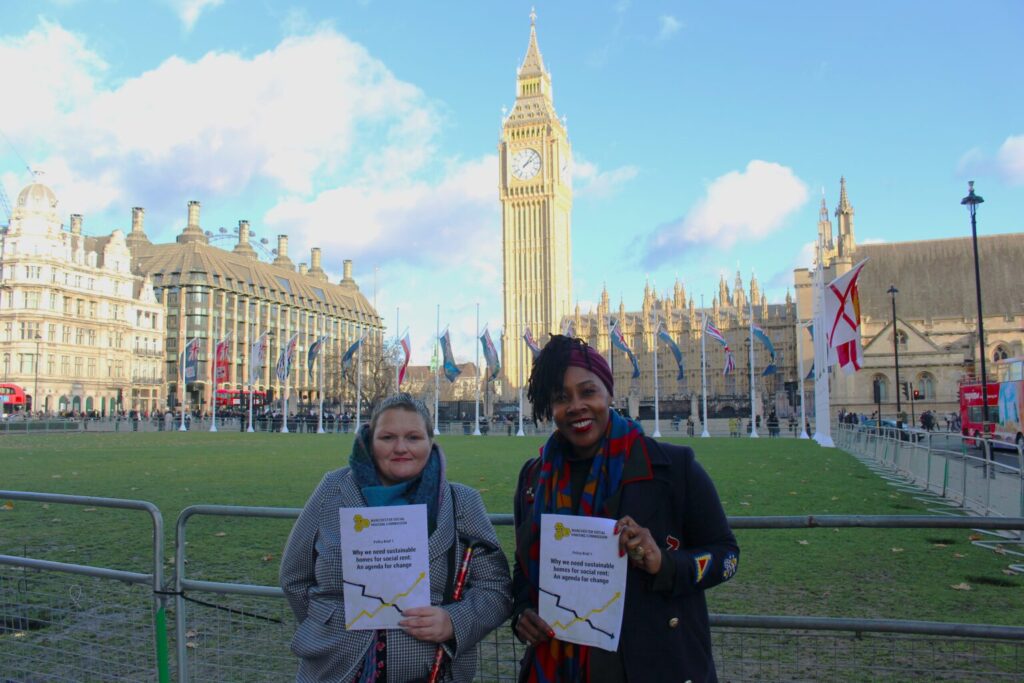GM Live Well: Reimagining Neighbourhood Regeneration
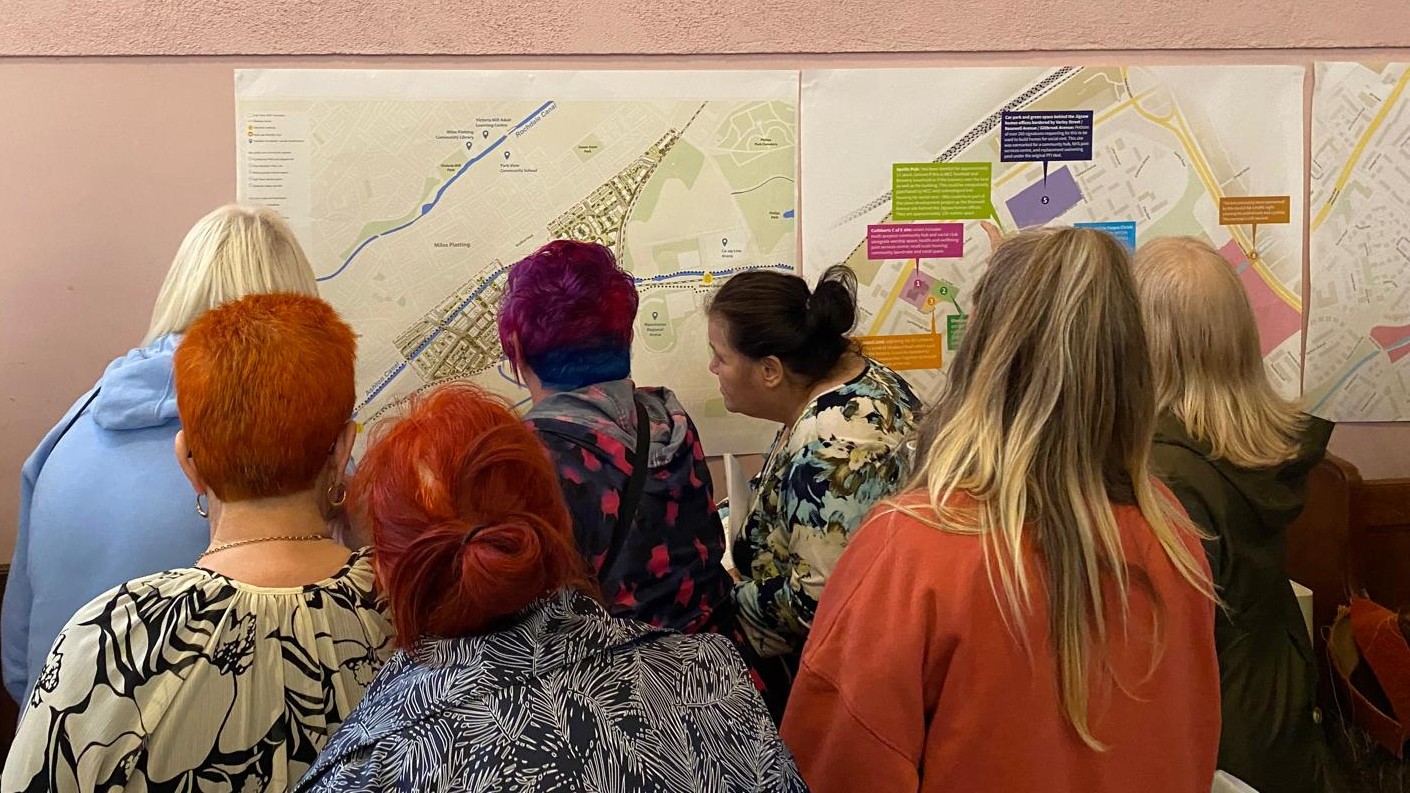
On Wednesday 26 November, Ellie and Anne from MPCAN; Lina from Wythenshawe Central Network and Sophie from CLASS presented as part of the #GMLiveWell webinar series. Community Savers were delighted to be invited to contribute to this theme because of the aim to explore why community-led placemaking matters, the conditions that enable its success, and inspiring examples of community-led programmes that are already transforming neighbourhoods across Greater Manchester.
Enabling community-led placemaking
Formal regeneration programmes are rarely community-led. This requires communities to organise from the ground-up so that place-making is driven by communities taking action on what matters most to them. For these efforts to succeed, communities need time and space to form strong and inclusive associational structures; bring diverse local people and groups into dialogue; and form productive and progressive partnerships with public and voluntary sector agencies, authorities and funders/investors who can help them realise their shared vision. Reforms giving more power to communties are also required.
These are the conditions that Community Savers and CLASS work to create. Rather than directing activities, CLASS staff co-create a process with Community Savers leaders that ensures residents, community organisations and faith groups are able to lead local change in partnership with regeneration professionals and public providers. For example, CLASS facilitates peer-learning exchanges and community-led research projects. This approach helps communities build their own evidence on need and learn from others who have taken similar steps.
For community-led placemaking to succeed, residents and communities need time and space to shape priorities and organise collectively, rather than being consulted as individuals. This requires strong infrastructure and networks that enable ongoing dialogue, peer learning, shared organising
and collaborative decision-making.
St Cuthberts Communities Together
“Miles Platting is a place that starts with, and always ends with, community. It’s a place of coffee, crumpets, and conversation where neighbours come together to imagine with hope what their area could become”
Ellie and Anne shared how after a private finance regeneration scheme lost its funding during the 2008
financial crash, plans for new community infrastructure fell through while demolitions and private redevelopments went ahead. In response, the Miles Platting Community Savers group used the Community Savers toolkit to take action. The group started bringing local people, churches and community-led projects together to grieve what had been lost and to create space for collective reflection, helping residents move forward. Building on this shared reflection, they worked with creative urban designers to take practical steps towards rebuilding together. Using large maps of their neighbourhood and participating in walkabouts, they explored their priorities and imagined what they wanted for their local area.
This community-led action has resulted in great success, including £40,000 investment in a new wildlife corridor and the formation of a partnership between Miles Platting Community and Age-friendly Network, St Cuthbert’s Church Council, and the Diocese of Manchester. Together, they are developing a new vision for St Cuthbert’s Church as a vibrant community hub, offering a space for worship, celebration, and connection.
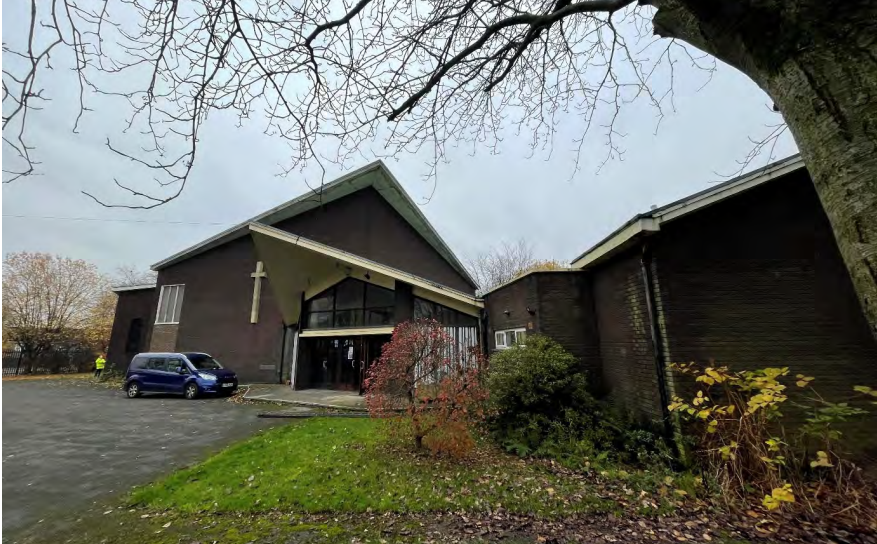
Women leading the way in Wythenshawe
Women are often at the sharpest end of poverty and inequality, while also providing vital support within their communities. Yet, women frequently have limited voice in the decisions that shape their lives and neighbourhoods. Women of Wythenshawe (WoW) was a three year partnership that brought diverse women together to address these challenges.
WoW emerged as a partnership between Wythenshawe Community Housing Group, Community Savers/CLASS, and twelve women-led community organisations in 2022. Together, they built a network of over 40 women leaders, representing a wide range of identities and experiences but united by a shared connection to place and a determination to build a better future for themselves and their families.
Over three years, the solidarity and collective organising led to the creation of Wythenshawe Central Network (WCN). In its first year, WCN has attracted over 130 residents and 22 organisations into membership and gathered priorities from hundreds more. Together, they have shaped a vision for Wythenshawe Civic, which encompasses 600 social rent homes including housing for larger families, older people, and people with learning and physical disabilities; and a participatory governance model for the new Culture Hub that has been proposed for the Town Centre.
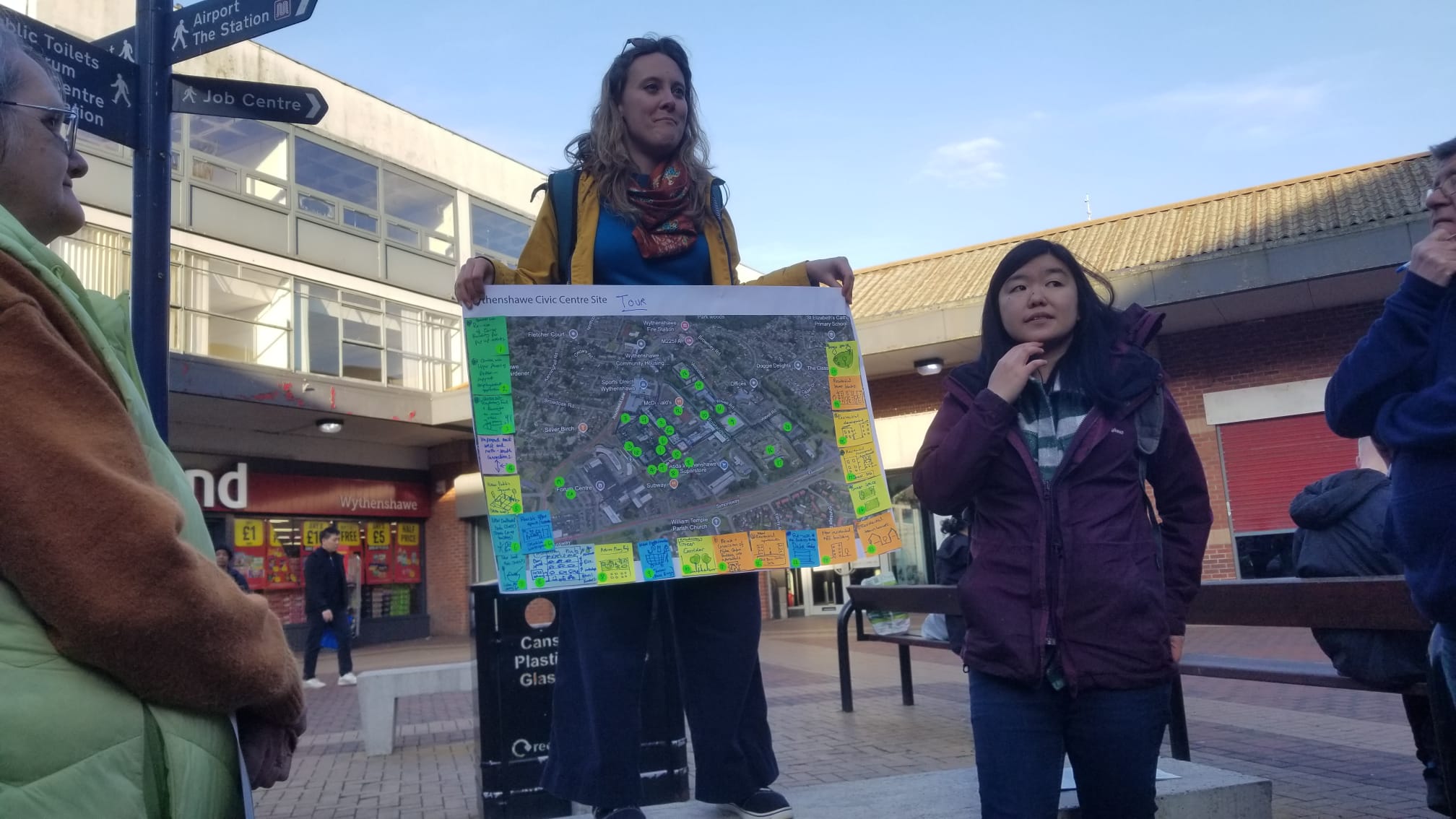
When women’s leadership is properly resourced, recognised and grounded in diverse identities and experiences, it becomes a powerful agent of change. By taking action in shaping their communities through a gender-critical lens, women-led networks can challenge place-based structural inequities and drive stronger, fairer, and more inclusive communities that respond to the needs of everyone.
Community Savers are looking forward to the GM Live Well Festival which is taking place between 9-23rd March 2026 and hope to organise a pop up event on exciting alternative models for neighbourhood governance with www.right-here.org. See you there!
More Power for Communities? We’re working on it…
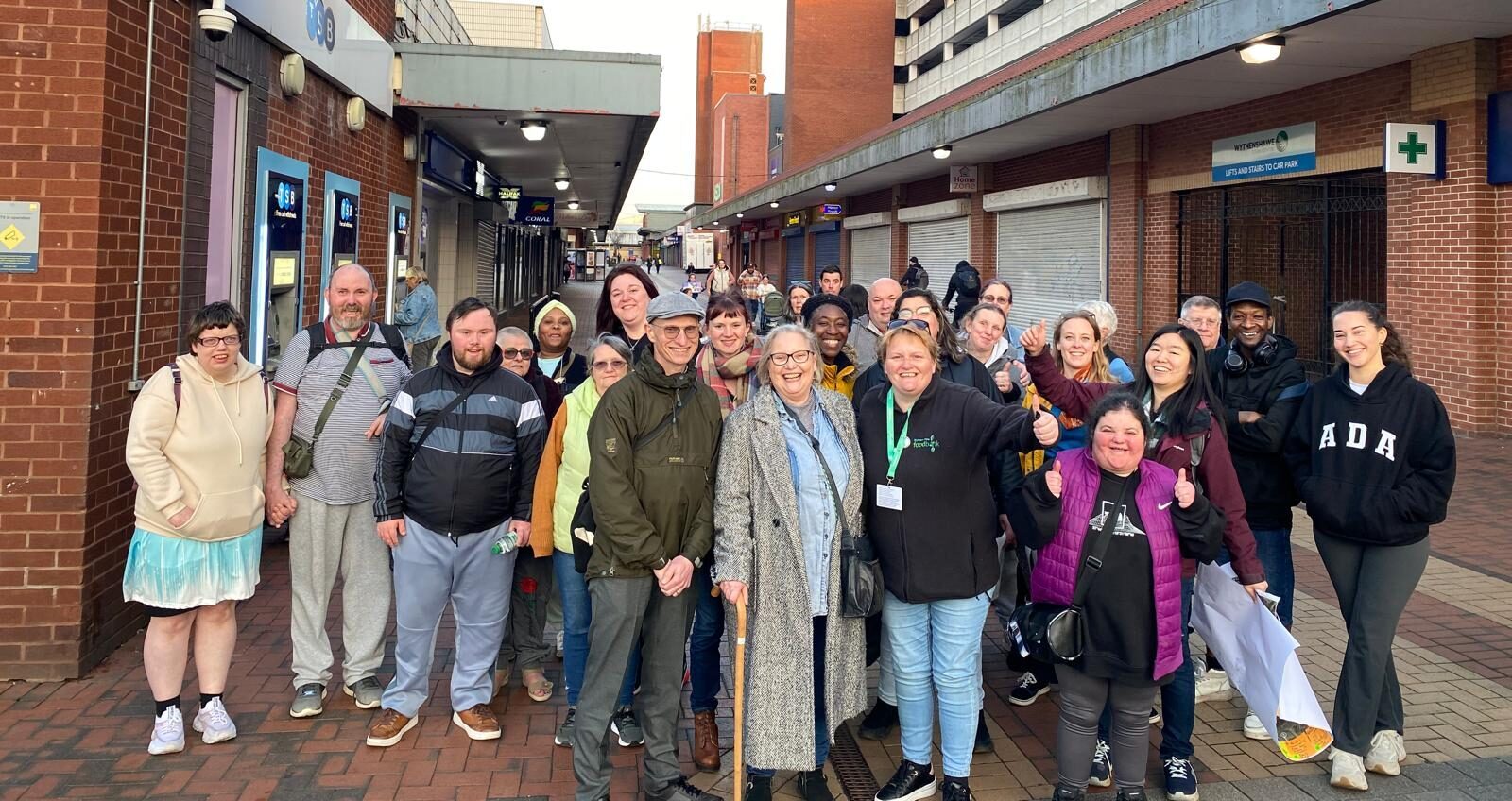
Its a busy time for community action with important changes in motion.
Below, community leaders from North, Central and South Manchester share the priorities they have organised around through the Manchester Social Housing Commission process and to ensure their voices are heard within the draft Local Plan for Manchester – after something called the ‘Regulation 18 consultation’ closed yesterday. We are also working closely with a coalition of groups in Moss Side who are now looking to establish a neighbourhood forum and create their own Neighbourhood Plan!
At the same time in parliament, MPs are debating amendments to the English Devolution and Community Empowerment bill this week that would include: # Establishing a community ownership fund to enable voluntary and community organisations to purchase assets of community value; # Strengthen options for community stewardship of land and assets; and # Introduce a statutory requirement to assess government performance against its duty to provide:
(i) access to a clean and healthy environment;
(ii) access to land or space to play, roam, and swim;
(iii) access to land for food growing;
(iv) the ability to contribute to and challenge decisions made at a local level;
(v) access to, use of, and ability to propose acquisition of assets of community value.
Community Savers are working with @We’reRightHere and @RightsCommunityAction to advance these forms of #CommunityPoweredPolitics nationally; and also amplifying our community voices across the City of Manchester within the consultation process for the new Local Plan in coalition with @SocialHomes4Mcr.
Collyhurst & Miles Platting
Residents, community groups, churches, and projects have been joining together across Ancoats, Collyhurst and Miles Platting since 2019 through Miles Platting Community & Age-friendly Network or ‘MPCAN’. MPCAN launched the Social Homes for Manchester campaign in October 2023 on the site where they were calling for new social rent homes after a net loss of over 500 homes following a PFI-led regeneration gone wrong. They are delighted that social rent homes will now be built on three of the sites they had been calling to have developed for this purpose and to have achieved an increase from 5% social or affordable rents to 21% social rent in city council policy together with the Social Homes for Manchester coalition.
Sue Anya, Miles Platting Savers and St Georges Youth and Community Centre on social rent housing targets:
MPCAN’s priorities also include:
30% social rent homes as a minimum across the 15,000 homes to be delivered in total through the Victoria North development framework in a context of over 4,600 children living in Temporary Accommodation across the city. And a new district centre to be developed at the crossroads between Ancoats, Collyhurst and Miles Platting including:
- A multi-purpose community and social centre, community-led housing, and health and wellbeing joint services centre on the St Cuthberts Church site along the lines of that which was to be delivered under the Miles Platting PFI. Manchester City Council could work with the community and the GM Live Well programme to look at the possibility for a GM Live Well Centre on the St Cuthberts site and help to facilitate NHS partnership for a joint services centre.
- Healthy and affordable food retail is desperately needed in the area with a volunteer run social supermarket the only way for residents of Miles Platting to access healthy nutritious fruit and vegetables without taking two buses to the nearest supermarket.
- Health and wellbeing leisure facilities such as a leisure centre and library to replace that which was demolished.
- Health infrastructure is desperately needed to address rapidly increasing population including GPs surgeries, dental practices, and specialist clinics tailored to local needs.
- Investment in the improvement and protection of green spaces and development of green spaces into active lifestyle zones including through outdoor gyms and community gardens and allotment spaces.
- Improved transport infrastructure to enable older, disabled, and people with long-term conditions or mums with lots of children to easily travel between local locations and to food retail and healthy lifestyle venues.
- To reconsider plans to build on Vauxhall Gardens which is an important heritage site for the local community
- Protection and improvements to existing Gypsies, Travellers and showpeople sites
The Aquarius Community
Tenant organising in the Aquarius estate has a long and rich history dating back to the Hulme Alliance in the 1970s. Most recently Aquarius Tenants and Residents Association, Aquarius Community Savers, Hulme Tenants Union, On Top of the World Project and residents across high rise social housing blocks owned by Guinness Partnership and One Manchester have joined together in their calls to have their neighbourhood recognised as a residential area that is distinct from and requires different forms of planning and housing interventions to the City Centre and Oxford Road Corridor. They are delighted to see their estate has been marked as outside the city centre in the new draft Local Plan but the boundary is currently in the wrong place.
Bernard Sudlow, Aquarius TARA and Aquarius Community Savers, on rezoning the Aquarius estate:
Aquarius tenants and residents and their community associations are also asking for:
- The inclusion of Hopton Court and Cooper House tower blocks within the rezoned Aquarius estate as key residential buildings linked to the estate.
- For a clear policy statement that: ‘all new homes should be safe in relation to the risk of fire; all new homes should have access to natural light; all new homes should demonstrate how they will be resilient to a changing climate; all new homes should be free from unacceptable and intrusive noise and light pollution; all new homes should not contribute to unsafe or illegal levels of indoor or ambient air pollution and must be built to minimise and where possible eliminate, the harmful impacts of air pollution on human health and the environment; and all new homes should be designed to provide year-round thermal comfort for inhabitants’.
- For a policy of at least 30% homes for social rent in all new developments of ten homes or above including a fair proportion of larger family homes not just one and two-bedroom apartments in a context of 4,600 children living in Temporary Accommodation across the city
- For stronger wording on developer contributions in line with the National Planning Policy Framework stating that: “the Council will seek contributions from development. These contributions will be relative to the scale and impact of the development and will ensure that Manchester’s communities are not adversely affected by development.’
- And, for a new policy on Community Involvement from the pre-application stage that gives communities a meaningful influence over the developments that shape their neighbourhoods and determine their health outcomes.
Wythenshawe Central
Diverse Wythenshawe women have been coming together to identify their priorities for poverty action since 2022, initially through the Women of Wythenshawe initiative, which saw community and faith groups taking action for systems change on Domestic Abuse, Housing and SEND. Now, through Wythenshawe Central Network which to date brings together over 130 local residents and 22 community and faith groups for a stronger voice over their needs and priorities for their own neighbourhood.
Mariam Karim, Better Things Ambassador, presented Wythenshawe Central’s priorities to the Manchester Social Housing Commission in December 2024 which have since been further developed and submitted this week as their ‘Regulation 18’ consultation response. Here, Mariam shares on that experience of participating in the Commission process:
Zoe Marlow, emerged from her community leadership roles with Women of Wythenshawe and as Housing Commissioner to be successfully elected as a local ward councillor for Woodhouse Park in September. Here, she speaks about what it was like to represent Wythenshawe Central Network on the housing commission for the preceding 18 months:
Wythenshawe Central Network’s priorities for the Local Plan are principally focused on the Wythenshawe Town Centre redevelopment within which they are calling for:
- At least 600 of all new homes to be for social rent within the Wythenshawe Civic Centre regeneration area to meet genuine local need and to tackle Manchester’s housing crisis.
- A fair proportion of low- and mid-rise, family-friendly social rent housing. This is particularly important given that the first three housing developments will be, in the majority, one and two bedroom apartments.
- Requirement for leasehold and governance arrangements on new retail, leisure, enterprise and community infrastructure/facilities, which can control the cost of these facilities for local residents both in terms of use (entrance fees/tickets etc) and potential hire or lease such as for small businesses and young entrepreneurs from the local area.
- Accountable governance structures for new community facilities to ensure these reflect local priorities and needs long into the future.
- Proactive provisions to protect long-term residents from displacement as investment and housing markets change.
The Local Plan process continues. Next year a second draft of the Local Plan will be published and come out for a Regulation 19 consultation and then there will be an examination in public.
For more information or to get involved please visit https://www.socialhomes4mcr.org.uk/get-involved.
Savers uniting from Middlesbrough to Wythenshawe!
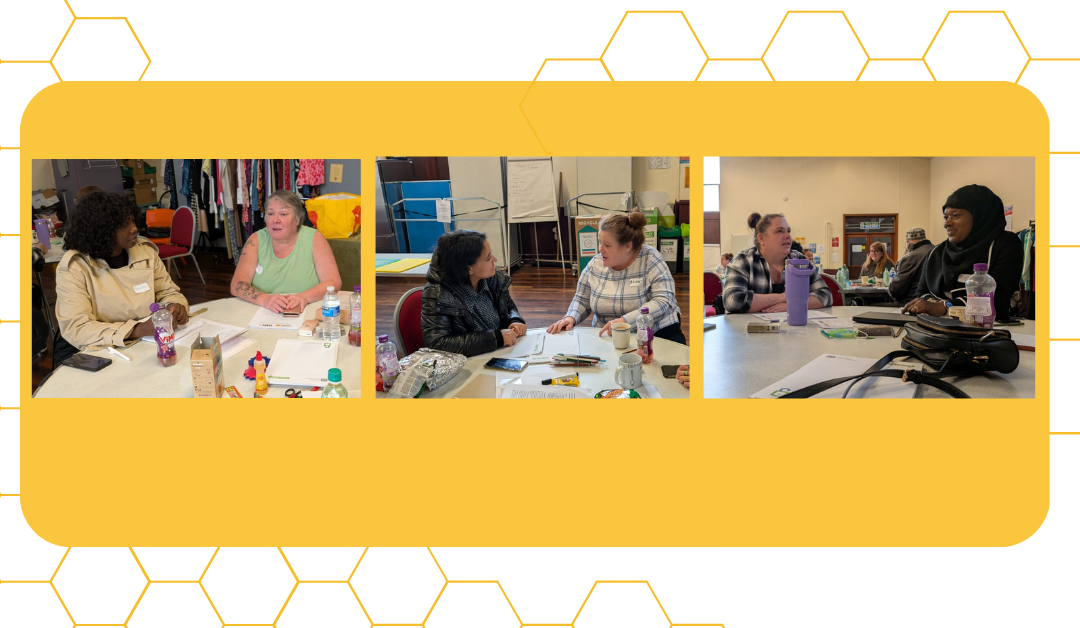
Community Savers leaders had another productive quarterly network meeting on Thursday and were delighted to welcome Rama, Fatima, and Mabintou from Middlesbrough!
Rama is coordinator for a CIO called Creative Minds Middlesbrough and is working with local women to learn from the Community Savers approach and set up their own savings group.
Leadership development, sharing learning and peer support are fundamental pillars of the Community Savers methodology and here Lina – a leader form Dandelion Savers and Wythenshawe Central Network shares on what Quarterly Network meetings are all about:
After a jam-packed morning full of Community Savers business affiliated savings groups from Brinnington, Miles Platting, Hulme and Wythenshawe shared their experiences of setting up and running savings clubs with our Middlesbrough guests. Bridget from MIles Platting Savers reflects on what she was able to share here:
Savings clubs are the building blocks of the Community SAvers approach and contribute significant impacts to financial and social inclusion and wellbeing. For example, our 2024 members survey revealed that:
· 85% of members feel more positive about life
· 81% feel less isolated
· 96% feel more community connection
· 96% saw improved mental health
Community Savers is about much more than saving money however. Through the savings clubs, local residents are able to come together to discuss local issues and soon begin developing their own local initiatives to address gaps and challenges.
Over time, the clubs become organising hubs for a wider network of groups and projects forming neighbourhood networks able to take collective action to reduce inequality and promote a better future for their local area.
For now though, Fathima, Rama and Mabintou will be focusing on getting the hang of getting their new savings club off the ground with support from a shared partner of Community Savers and Creative Minds Middlesbrough – Turn2us https://www.turn2us.org.uk/
Rama visiting from Middlesbrough talking about her experience of attending a Community Saver network meeting.
Fatima from Middlesbrough reflecting on the learning from the day.
Whose City? Whose Plan? Local Plan Consultation now open
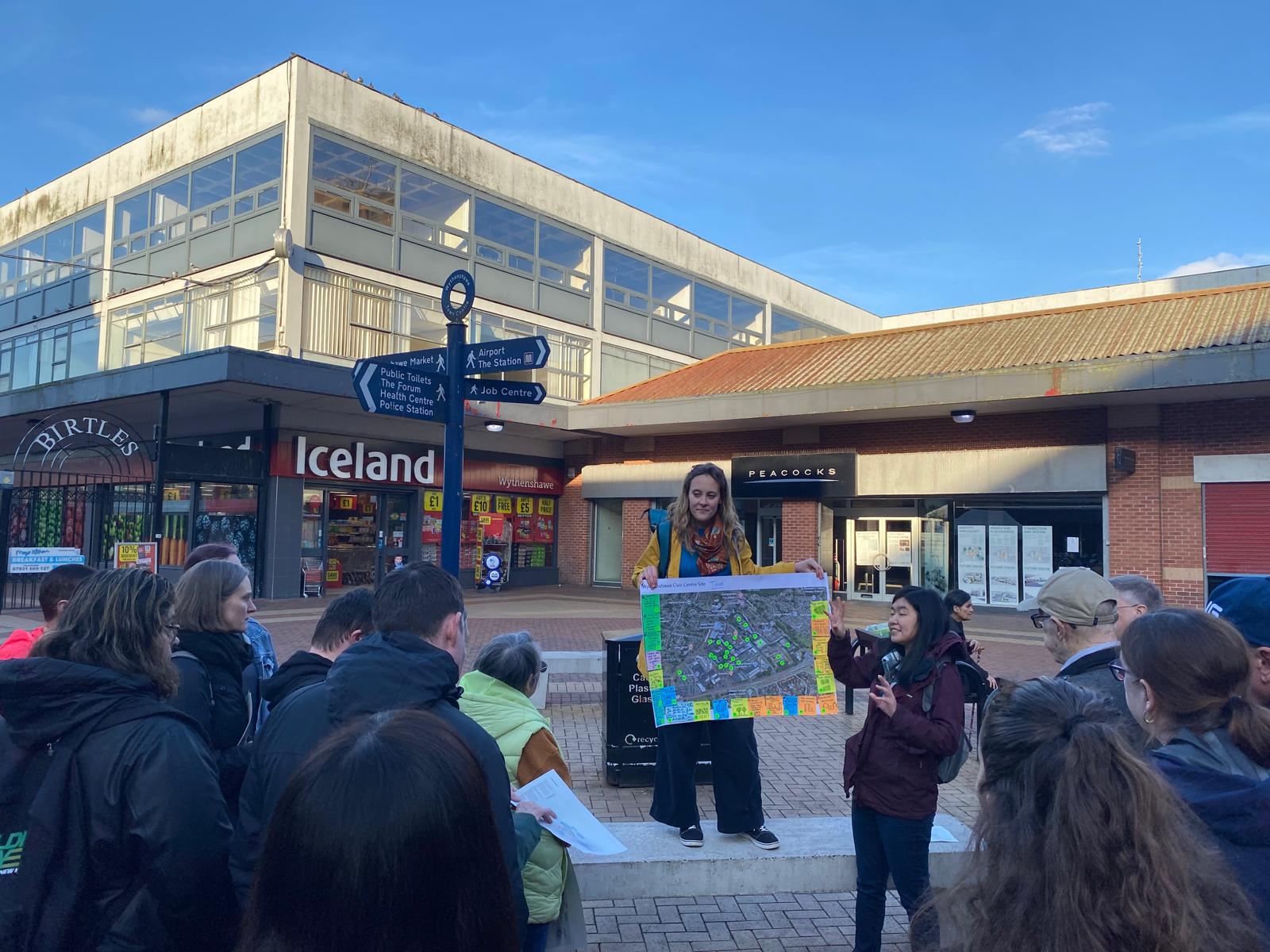
Manchester’s Draft Local Plan out for 10-week consultation
Manchester City Council released their draft Local Plan for a 10-week consultation period on Monday 22nd September. You can access the draft plan with full supporting documentation and submit a consultation response here.
The Council will be holding the following consultation events:
- Wednesday 22nd October, 4pm-7pm – Gorton Hub, 27 Garratt Way, M18 8HE. The hub is on Hyde Road at the junction with Whitewell Way.
- Tuesday 28th October, 4pm-7pm – North City Library, Rochdale Road, Harpurhey, M9 4AF.
- Wednesday 29th October, 3.30pm-7pm – Wythenshawe Forum, Forum Centre, Simonsway, Wythenshawe, M22 5RX.
- Thursday 6th November, 11am-2pm – Central Library, St Peters Square, City Centre, M2 5PD.
- Thursday 6th November, 4pm-7pm – Central Library, St Peters Square, City Centre, M2 5PD.
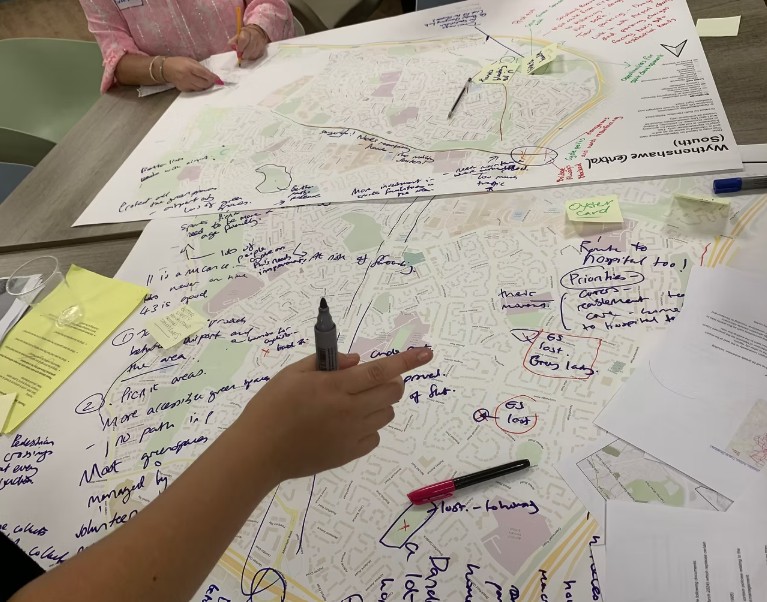
What is the Local Plan? Why should I care?
All Local Authorities must produce a Local Plan. Topics that Local Plans usually cover include housing, employment, green space, and retail. They also identify where development should take place in a city and where development should be restricted.
If you want a say in what can be developed in your local area and the city – you need to know about this!
Local Plans have a long life-span because they take so long to review each time. The last Local Plan in Manchester was published in 2012 and is still the current policy for the city. Some aspects of Planning are still determined by the Unitary Development Plan that was published in 1995!
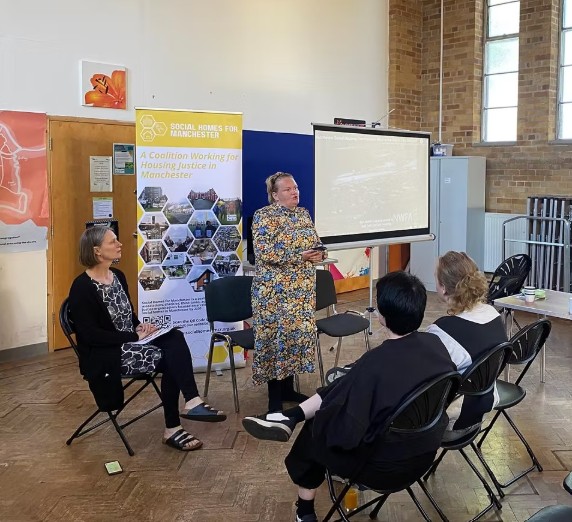
This new Local Plan is likely to continue to shape what kinds of housing (and other facilities) can be developed, and where, for at least the next 10 years.
Why is it so important for Manchester communities to submit a response?
Manchester is at the sharp end of the housing crisis in both availability and affordability. There has been a net loss of more than 16,000 social rent homes to Right to Buy alone since 1979. There are now approximately 20,000 households on the waiting list for a home in Manchester. From 2015 to 2023, the city experienced an 84% increase in the average house price paid and a 61% increase in the average monthly private rent (much higher than the England average). These increases far exceed the 18.7% growth in median hourly earnings in Manchester over the same period, contributing to a situation where 1 in 5 households in Manchester are living in fuel poverty.
While the new Local Plan does introduce some welcome increased targets for affordable housing and housing for social rent, it does not go far enough to address the housing crisis amidst a supportive national and city-regional political and funding environment where £39 billion has been invested in affordable and social housing of which SH4M have learned that approximately £2.5 billion will be invested in Greater Manchester.
It is also important to submit any objections to the plan now to be able to participate in later stages of the decision-making process. The process for passing the Local Plan into policy has several stages. After this initial consultation (called a Regulation 18 consultation) there will be a second version published which will also go out for consultation (a Regulation 19 consultation). Then there will be an Examination in Public.
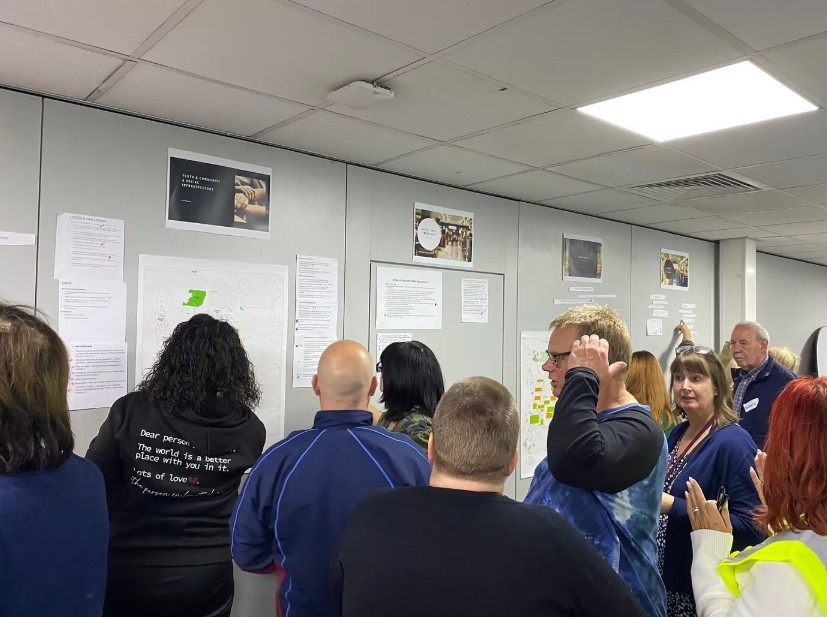
This is a chance for community representatives to address the national Planning Inspector directly at a public event. Only those who have submitted objections during earlier stages of the process will have the right to attend and speak at the public examination of the plan.
At the end of the process, the Inspector will make a recommendation on the Main Modifications required for the Local Plan to pass inspection and be adopted.
As an example, you can view clips from Days 1-5 of an examination of York City Council’s Local Plan from 2018 here. Notice all the white men in suits? This is not what we want to see in Manchester!
But what can I do, really?
This can all feel very technical. You have the power to work together with others and your local councillors to advocate for your community’s priorities for your own local area and for the city. SH4M can help.
Residents and community groups are coming together across the city, within their own neighbourhoods, and to join forces across neighbourhood boundaries, to share their priorities for the homes, communities, and the city they want to live in and co-create.
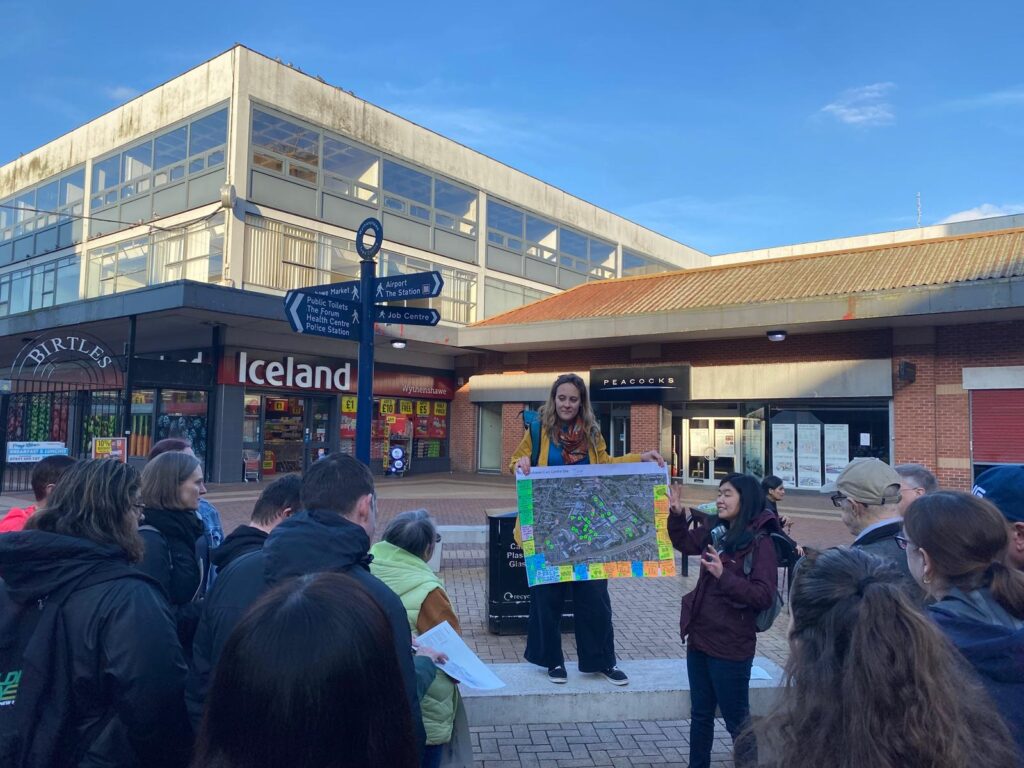
SH4M’s headline request is for Manchester City Council to include a minimum target of 30% social rent in all new housing developments of ten homes or more in the Local Plan. Research evidence tells us this is the minimum amount we need to address the housing crisis. This is possible to do. Other similar cities are setting targets of 40% and 50% social rent.
Here are some suggestions for how you can get involved and advance your own local priorities:
1. Join the campaign: you will receive information, calls to action, and updates on the process.
2. Invite us to run a workshop in your local area: socialhomes4mcr@gmail.com.
3. Engage your ward councillors: they may be interested to work with you to organise a local meeting to discuss priorities for your local area and represent these through a submission to the Local Plan Consultation when it opens.
4. Submit a response to the Local Plan consultation when it opens. There is more information on the MCC website here: https://tinyurl.com/2h7hc46c.
We will be publishing our own local plan consultation response on here soon. If you are signed up to the mailing list we will share this with you in case you would like to support similar asks in your own response.
Community-led placemaking in Collyhurst & Miles Platting
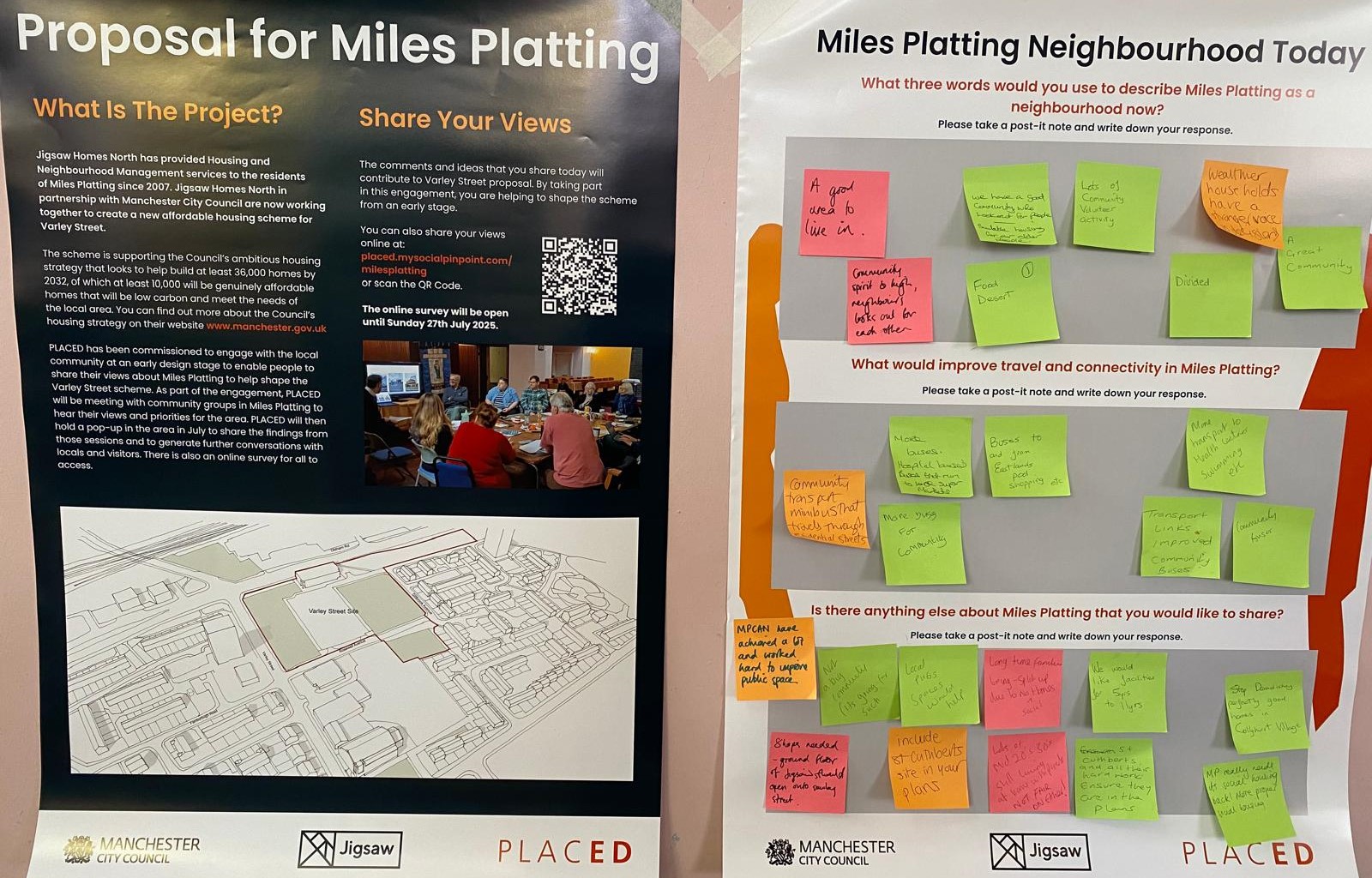
Miles Platting Community and Age-Friendly Network have been busy!
St Cuthbert’s Communities Together
In partnership with the Parochial Church Council, the St Cuthbert’s Action Group successfully set up a new Charitable Incorporated Organisation called St Cuthbert’s Communities Together, which is taking forward the community-led redevelopment of the St Cuthbert’s church. The Board of Trustees are working with architects and applying for further funding to begin working on feasibility studies to take the project forward. Members are hoping that this will provide much-needed facilities including a place of worship, a social hub and bar, a laundrette, health services and housing provision. Plans are underway and this development is shaping up to be an exciting space which will benefit the local community and beyond…
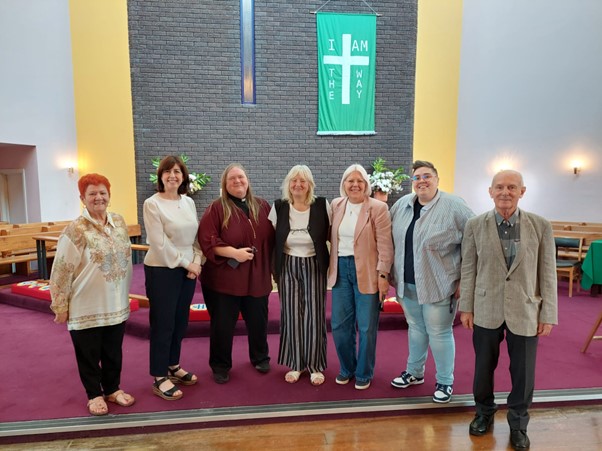
Miles Platting Climate Action
Following their success in creating a Miles Platting Wildlife Corridor through Greater Manchester Green Spaces funding, the Climate Action Group have enjoyed seeing the benefits of interventions across key local green spaces. New trees, hedging, wildlife, flowers & plants have been thriving during the summer and attracting a wide range of biodiversity. Local residents have enjoyed attending local gardening events and look forward to a community orcharding workshop at Chippenham Gardens this Friday 22nd August.
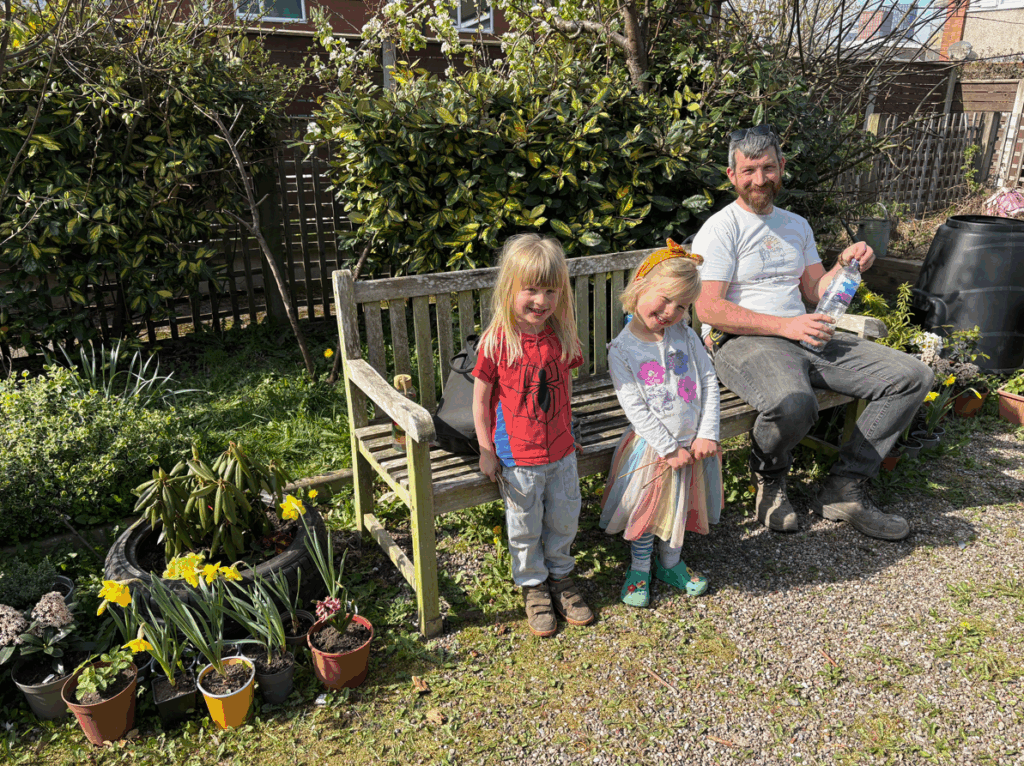
With continued support from Dr Jenna Ashton from University of Manchester and Creative Climate Resilience, the Climate Action Group are looking to fund further improvements, protection, and local engagement across Miles Platting’s green spaces.
Social Homes for Miles Platting
The Social Homes for Miles Platting campaign has been making headway as MPCAN members have been meeting with their local councillors and MP to advocate for increased numbers of social homes. MPCAN’s Anuual General Meeting in July also included a consultation led by PLACED, the community engagement team on upcoming local developments in partnership with Jigsaw Homes.
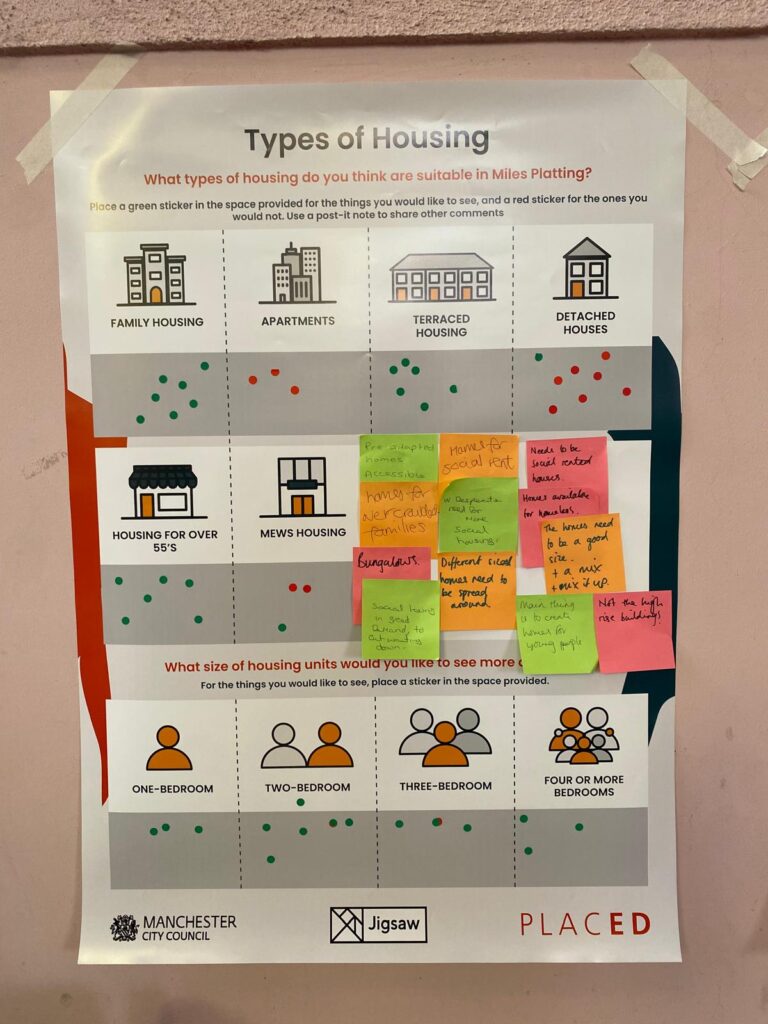
The wider Social Homes for Manchester campaign saw a big step forward as Manchester City Council (MCC) passed a motion to increase social and affordable housing targets in the city. Where the 2012 policy said that only 5% of new housing developments of 15 homes or more had to be social or affordable, they have now voted for a new target, under which 21% of new housing developments of 10 homes or above must be social rent.
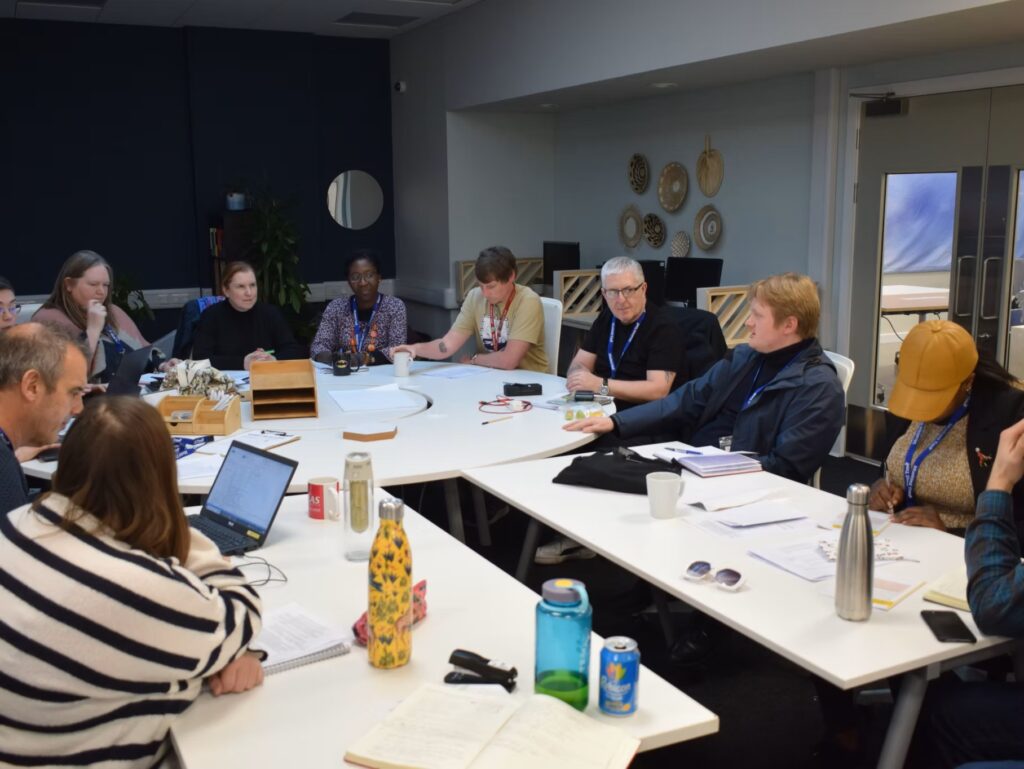
These new targets were a key focus for the Manchester Social Housing Commission, which has MPCAN represented by members Sue Anya and Sheila Davies. The announcement represents a huge success on part of the hardwork and advocacy of community commissioners from Miles Platting, Hulme and Moss Side.
MPCAN age-friendly and action groups are going from strength to strength and their commitment to the community continues to benefit local residents in Miles Platting and Manchester more widely.
If you wish to get involved, please email milesplattingcommunitynetwork@gmail.com
Follow MPCAN on Facebook for regular updates: https://www.facebook.com/milesplattingcommunityandagefriendlynetwork/
Wythenshawe Central Network – Summer 2025 update
Wythenshawe Central Network (WCN) is a women-led neighbourhood forum, constituted in July 2024 to bring together residents and groups to develop a stronger, collective voice on local issues in Wythenshawe. WCN recently affiliated with Community Savers, and includes Dandelion Savers and Mums Mart amongst its membership.
WCN is a legacy of Women of Wythenshawe (WOW) – a three year women-led community action initiative focused on achieving place-based systems change on gendered poverty, funded by the Smallwood Trust. Diverse women’s groups from across the Wythenshawe area joined together to identify the most pervasive issues holding women in poverty locally. Leaders achieved impressive impacts on a range of issues including addressing the crisis in housing, special educational needs, and domestic abuse provision. Women’s groups identified the redevelopment of Wythenshawe Town Centre as a critical moment to ensure that the priorities of women, families and young people, including those with learning disabilities, are put at the heart of local decision-making.
From September to November 2024, WCN held three community workshops inviting residents to have open discussions and share their views. These were some of the top priorities:
- Maximise the percentage of social rent homes with provision for a diverse range of tenants, including people with disabilities, older people, overcrowded families requiring larger 3- and 4-bed homes, and women & children fleeing domestic abuse.
- Increase the availability and maintenance of better quality & accessible green spaces
- Affordable retail and leisure facilities & capped rental prices for local businesses
- Training, apprenticeships and job opportunities for young people
- A community transport system and increased parking spaces
- Increased health, welfare and social care provision to match the increased population
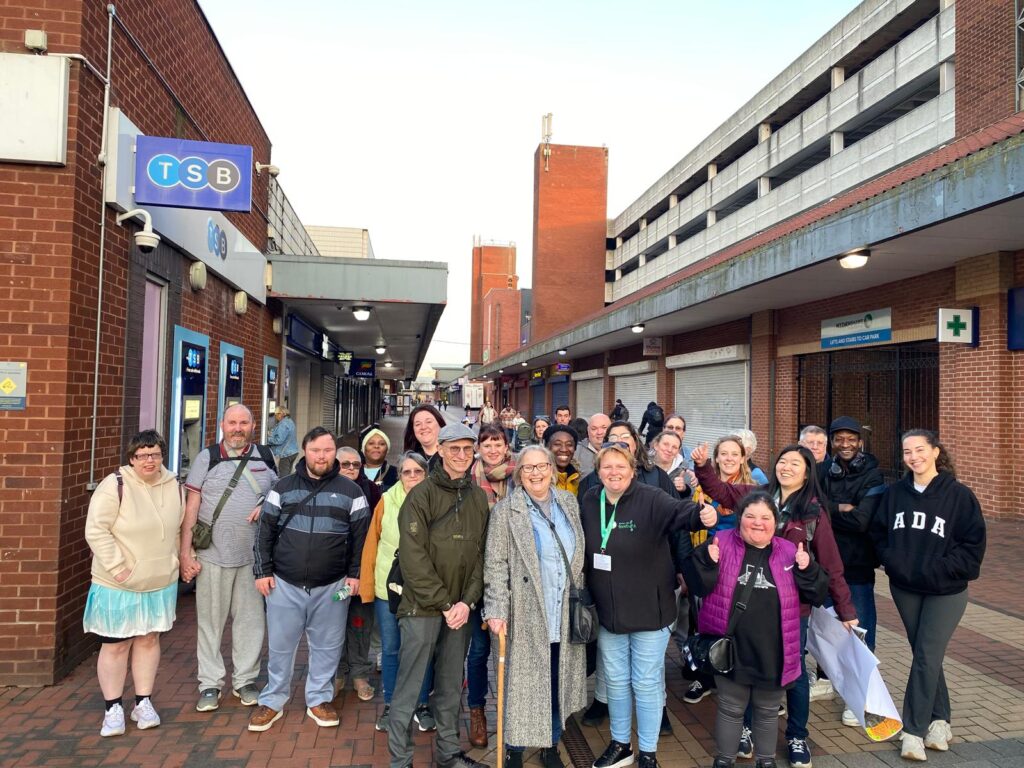
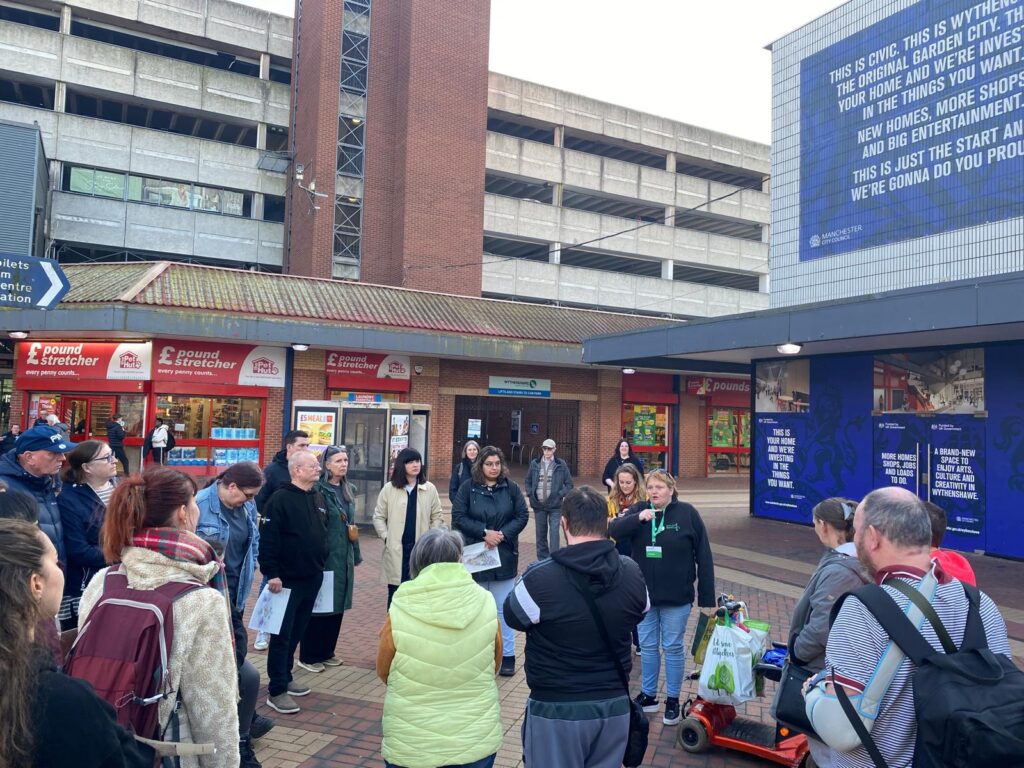
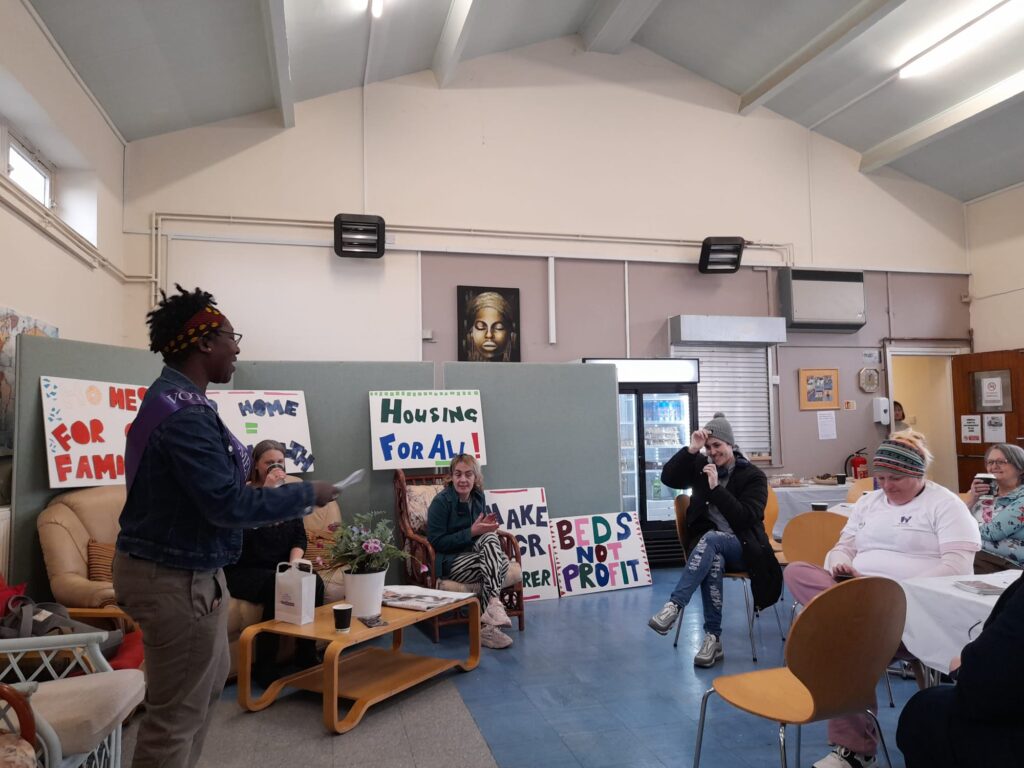
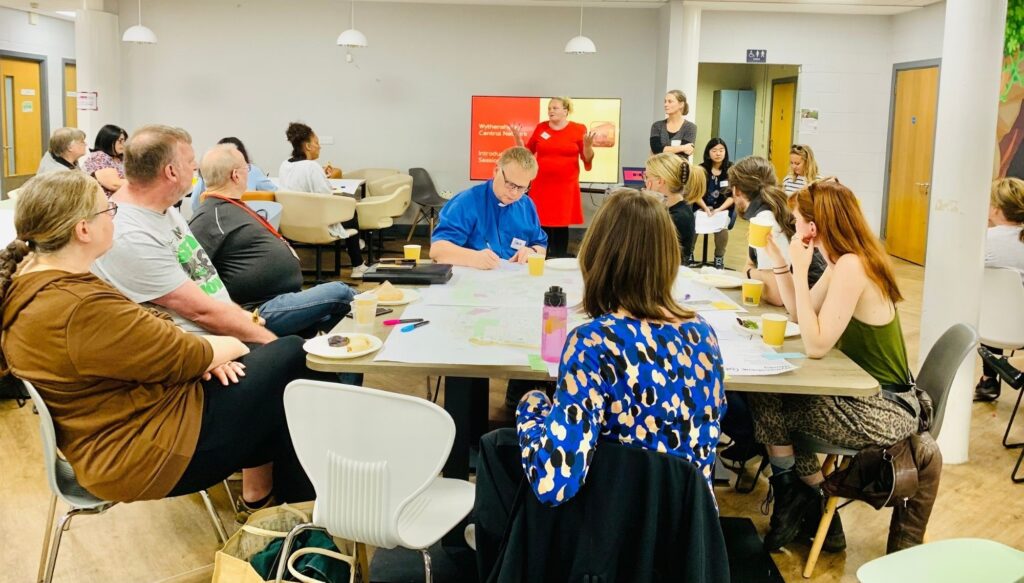
Manchester City Council and the appointed developer MUSE have agreed to meet with WCN leaders in August to listen to their priorities, including for a more inclusive and participatory development process. WCN members are working with urban design consultants to better understand how the development process works and advocate for meaningful community influence.
Wythenshawe Central Network now represents over 20 resident-led and user-led community groups and more than 100 local residents. And they are also working in alliance with Churches Together Wythenshawe who have 15 churches in their membership. WCN are committed to ensuring women, families and young people are at the heart of local plans, and people of all gender-identities and backgrounds are encouraged to get involved. Membership is open to all residents, groups and projects living, working or running activities in the Wythenshawe Central area – please email wythenshawecentral@gmail.com to find out more or if you wish to become a member. You can also sign up to the mailing list to keep informed about upcoming workshops and events.
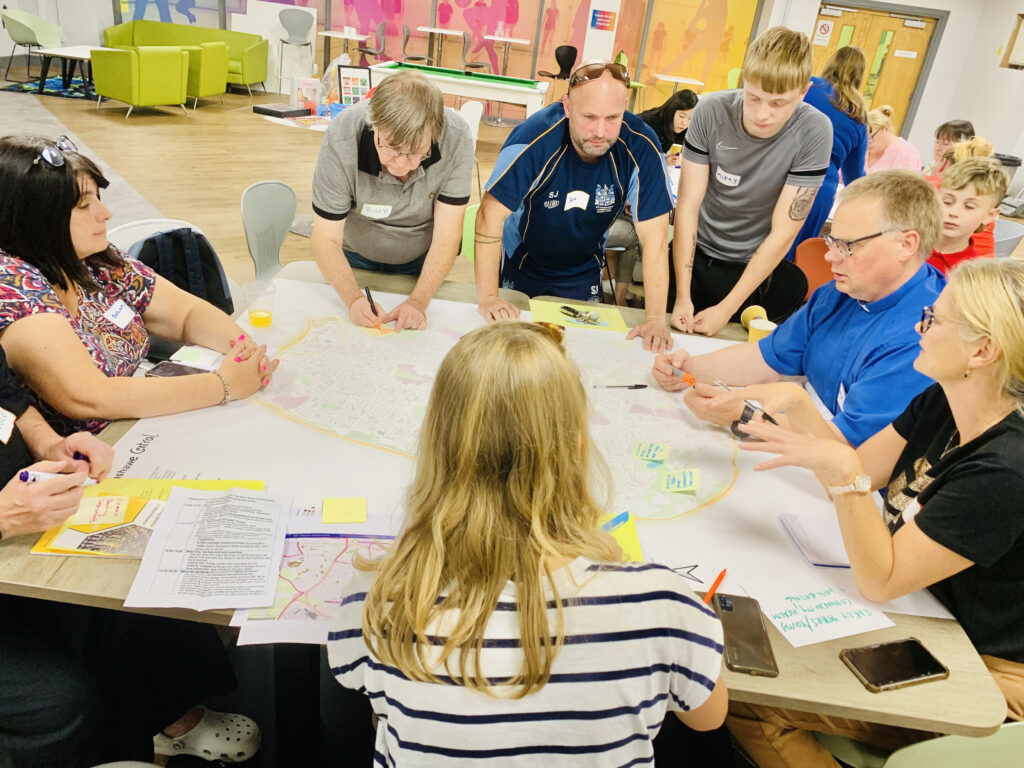
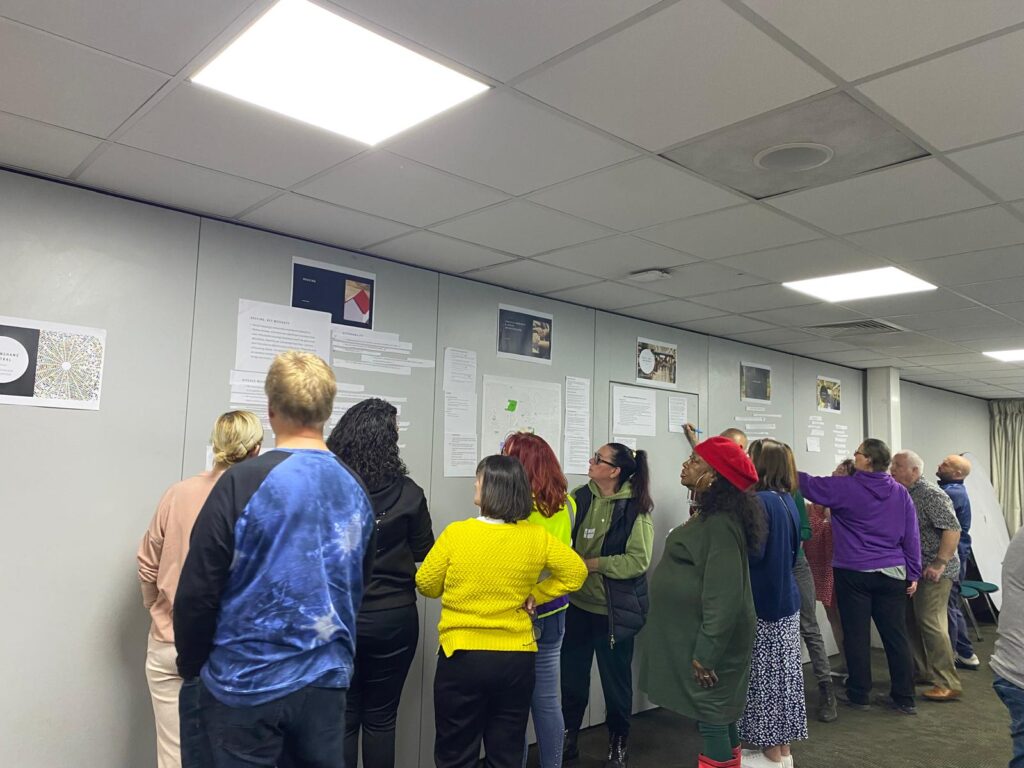
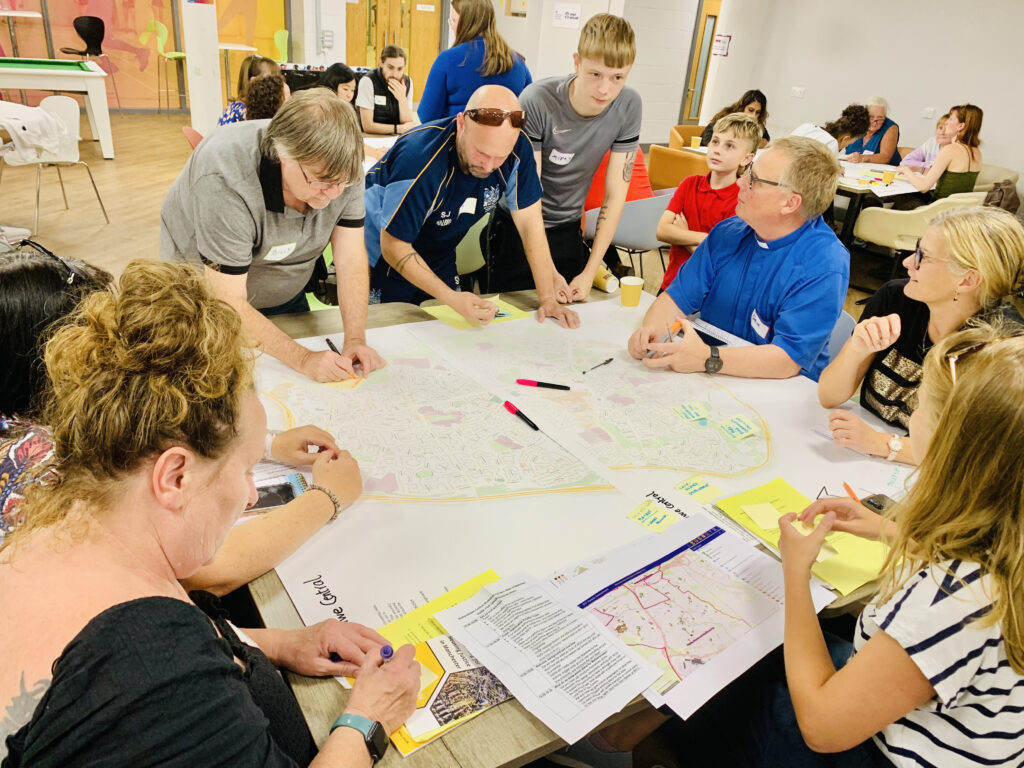

WOW! Celebrating Three Years of Women of Wythenshawe (2022-2025)

Women of Wythenshawe were out in full swing on Saturday evening to celebrate three years of hard work, personal and relational development and social change. The project has brought together nine local women’s groups to identify their priorities and take action on gendered poverty in Wythenshawe:
- Better Things Ambassadors
- Bright Futures Friends
- Dandelion Savers
- Know Africa
- Lifted Carers
- Mums Mart
- SEND Together
- Well Women
- Wythenshawe Women’s Welfare Association

Members from across these groups initially engaged in a series of learning exchanges whereby the women leaders visited one another in their local community settings. Alongside storytelling workshops, learning exchanges, and a co-created skills-based training programme, and gradually sharing and recognising their common experiences, this has enabled women to build their confidence to work with each other, deepen their understanding of their common experiences, and develop strong solidarity relationships.
“Before participating in WoW I have never attended a meeting with lots of people. I was a shy person; and it increased my confidence. It helped me meet with other people without feeling nervous…I feel that individually I have really benefited from being part of the WOW Network, it has changed my life!” WoW Participant
WoW women formed action groups around three main priority issues for women living in poverty in Wythenshawe which they identified as requiring systems change; Domestic Abuse; the Housing crisis; and the system around Special Educational Needs support for children, parents and carers.
Domestic Abuse
The Domestic Abuse Action Group partnered with Wythenshawe Safespots, a survivor-led support charity based in Wythenshawe, and worked with On Our Radar to gather survivors’ experiences and create a series of videos for a specialist online training portal reflecting the diverse experiences of Wythenshawe women. The training portal covers ten different kinds of abuse and survivor testimonies reflecting on the support they received and what would have made a difference. The training is aimed at public sector workers across Wythenshawe, aiming to improve the support received by survivors and will be launched in September 2025.
SEND
Leaders from the SEND Action Group have been busy undertaking training in SEND Law, IPSEA Courses, Mental Health and SEND Awareness to develop their capacity and knowledge to support service-users within their local SEND support groups. Working with SENETA, they produced a series of ‘myth-busting’ videos aimed at parents and carers of SEND children to raise awareness and share knowledge across the Wythenshawe SEND community. They partnered with The Grange specialist school to undertake a Train the Trainer programme. Working through new and existing connections, leaders aim to deliver this training in Wythenshawe schools and raise awareness among teachers and staff members to increase appropriate levels of SEND provision.
“Learning about the current situation in schools and the experiences of people with disability, there are some similarities still to when I was going through the system and it is good to be working on trying to change it… I’d like to see more schools taking up the training we are working on from The Grange and also the Inclusion Quality Mark accreditation.” WoW Participant
Housing and Inclusive Development
Born out of the Housing Action group, the Wythenshawe Central Network is a constituted, neighbourhood forum currently with 20 organisational and 100 individuals across its membership. The network was formed amidst increasing local concerns about what was happening with the redevelopment of Wythenshawe’s Civic Centre. With support from urban design consultants, WoW leaders brought together local residents, community groups, civic and faith organisations through a series of community workshops and a neighbourhood walkabout with local councillors (header image) to map out their hopes, fears and priorities for Wythenshawe. The network has partnered with Churches Together Wythenshawe to advocate for a stronger local influence in decision-making processes and ensure the diverse needs of Wythenshawe’s community are reflected in plans to unfold.
“I’ve learned where to go, and who to approach, and what to say to the people that we are asking things from, whereas two years ago I wouldn’t have had a clue about any of what we are doing now. I’ve learned how to understand the jargon, how to approach things, how to be in the room with so many highly qualified people, but feel that I belong there which is very important because people like me don’t usually feel they belong in that room.” (WCN Committee member and member of the WoW Housing Action Group)

WCN are a key ‘local area team’ within the wider Social Homes for Manchester coalition who have just contributed to an increase in social rent housing targets for the city of Manchester from 5% social or affordable rents to 21% social rent.
Women-led Enterprise
Some women leaders have partnered with Flourish Together CIC to develop their skills and capacity and establish their own social enterprises. Bright Futures Friends are running outdoor learning activities, and exploring becoming incorporated to do SEND awareness training consultancy. Well Women and Know Africa leaders are hoping to set up catering enterprises and we had the pleasure of having their delicious food at our celebration party on Saturday!
It has been an amazing three years of learning, skills-development, challenges, achievement and growth for WoW women. Leaders have worked extremely hard and are keen to continue advocating for systems change on gendered poverty by working closely in collaboration with local councillors, partner organisations, and most importantly each other.
“Someone once said that unity is strength and that is certainly true of the Women of Wythenshawe project. Having the opportunity to be part of a hugely varied and diverse group of women, sharing experiences from different perspectives and experiences only makes this incredible group of women stronger in their pursuit of systems and policy change and in support and understanding of each other.” Wow Partner
A Big Step Forward

Social Homes for Manchester are pleased to announce that Manchester City Council (MCC) passed a motion last Wednesday 16 July to increase social and affordable housing targets in the city.
Moving away from the 2012 policy where only 5% of new housing developments of 15 homes or above had to be social or affordable rents; MCC have now voted for a new set of targets under which 21% of new housing developments of 10 homes or above must be social rent.
The original motion was brought by the Lib Dems after a Green Party amendment to a motion in February 2025 endorsing Social Homes for Manchester’s ask for 30% social rent was not agreed by council.
The new city policy will require 30% of all new housing developments of ten homes or more to be ‘affordable housing’ of which 21% should be social rent homes, a further 3% is to be Manchester Living Rent (which means within the Local Housing Allowance threshold), and 6% is to be low-cost home ownership options.
The new targets were a key focus of discussion at the Manchester Social Housing Commission on Thursday when Community Commissioners from Miles Platting, Hulme, Moss Side, and Wythenshawe thanked Executive Member for Housing and Development Cllr Gavin White and all elected members for listening to community concerns on the housing crisis:
“Last year when I walked in this room, I just thought no, it’s just going to be a load of talk, and nothing is going to change. But listening to the discussion around this table now, I just can’t thank you enough for all the hard work that you all do. Thank you on behalf of all the residents, and all the communities.” Zoe Marlow, Wythenshawe Central Network.
Councillor Gavin White said:
“We were pleased to see the council giving unanimous support for our view that 30% of our housing delivery should be affordable with 70% of this being for social rent. We all want to see more social, council, and genuinely affordable housing in our city, to tackle the housing and homelessness we face.
It has been good to engage with and listen to the social housing commission over the last year and ensure that our ongoing response and strategy as a council is truly ambitious to meet the needs of our city.
We are pleased to see the recent announcements by the Labour government of £39bn for new social and affordable housing over the next 10 years, with 60% of that being for social rent – we are already in discussions with government about how we can help with the accelerated delivery of these new social and affordable homes in Manchester.”
Next steps
The local plan with these revised targets and policies will be subject to an 8-week public consultation from mid-September 2025. While recognising this big step forward for the city in addressing the housing crisis, for Community Commissioners and the Social Homes for Manchester coalition, concerns remain about what this will mean in practice.
1. The evidence tells us that 32% of new build homes must be for social rent to address the housing crisis across GM.
Robust research into the housing crisis across England provides clear evidence that we need to deliver 32% social rent across Greater Manchester.[i] The Commission’s own evidence highlights the cost savings social rent achieves for government and how social rent is the only tenure that can address the crisis of more than 4,500 children in Temporary Accommodation and nearly 20,000 households on the waiting list for a social home in Manchester.
2. There is a groundswell of political will to build higher levels of social rent, and this is reflected in large increases in national grant.
21% social rent is a big step forward that should be celebrated, but we know that what we really need in Manchester is a minimum target of at least 30% social rent. MCC have been making great progress towards building higher levels of social rent even before Rachel Reeves announcement of £39 billion for social and affordable housing, and Angela Raynor’s follow up call for 60% of the homes delivered to be for social rent.
One example is the development of 69 low carbon homes with 100% available for social rent. Another is the planned development on the former Boddingtons site which is set to include 60% affordable housing including 22% social rent with 55% of this funded through grant and 5% funded through Section 106 contributions.
With such a significant increase in national investment and so much political support for social rent delivery at national and city-regional level, why not aim higher?
3. Developers must pay their share
Increased grant rate should not be an excuse for private developers making millions of pounds in profit to avoid a fair contribution to public benefit in the city.
Our comparative table of a range of English cities shows that historically in Manchester developers have been given a free ride when it comes to making contributions for social rent delivery.
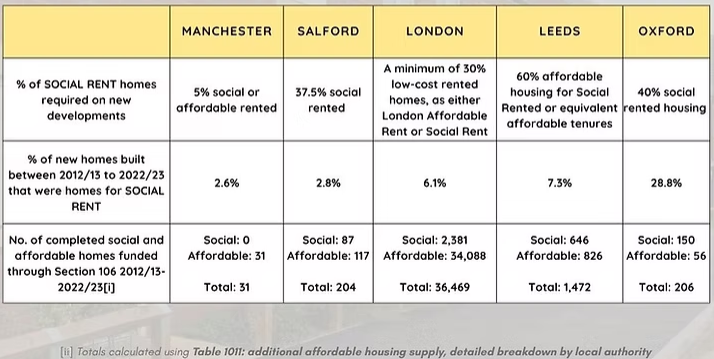
In addition to adopting a minimum requirement of social rent homes on all new housing developments of ten units or more, MCC have the power to set a percentage of social rent homes onsite of every new development, which then puts the onus on the developer to demonstrate through transparent viability if this is not possible. It also gives the local authority more weight in the decision.
This would help avoid viability loopholes that many local areas see when negotiating with big developers via Section 106/planning obligation agreements.
Developer contributions could also be used to retrofit existing poor quality/poorly insulated social homes on a case-by-case basis, which would, where implemented, mitigate damp and mould, bring down energy bills, and reduce carbon emissions.
4. Increased Planning capacity, transparency, and accountability
To maximise the delivery of ecologically sustainable social rent homes we need increased investment in funding for local authority planning departments and capacity building and training for local Planning Committees (something Oxford City Council have done to positive effect).
The Manchester Social Housing Commission are advocating in partnership with others across the country for the protection of community voice and the voice of elected members in planning decisions through the retention of powers of local Planning Committees.
These committees and our Planning Officers need training and capacity building to enable them to understand the complexity of planning issues; to hold developers to account for their obligations; and to implement and enforce planning conditions through to the end of a development process.
All too often developers negotiate their way out of the conditions placed on their planning applications citing a lack of profitability using ‘viability assessments’ compiled by expensive planning consultants.
This must end, and Commissioners continue to work with Lords and MPs to push Government to recognise that they must close the viability loophole and invest in local authority planning departments to ensure they have the expertise, time, and resources to hold developers to account.
Locally, Social Homes for Manchester are asking MCC for a new set of Planning Transparency pages on their website to enable communities to search by ward and at city-scale for local area data on housing need; active planning applications; and levels of social rent requested and delivered through both Section 106 and other forms of investment.
Manchester residents: please sign up to join the SH4M mailing list here.
Ward councillors: please make your pledge to demonstrate your support for a target of 30% social rent on all new developments of ten homes or more.
Manchester-based organisations: please demonstrate your organisation’s support for the six asks of the SH4M coalition – join the coalition here.
Our six asks:
- At least 30% social rent in all new developments of over 10 units.
- Stronger scrutiny and public accountability for the setting and enforcement of Section 106 developer obligations and to focus these contributions on the delivery of ecologically sustainable homes for social rent.
- Establish a Commission on social rent housing for Manchester.
- Develop a practical strategy for how to increase delivery of Community Led Housing and other community-led facilities including from donations of council-owned land.
- Develop a practical strategy for the renovation and transfer of empty homes into sustainable homes for social rent.
- Ensure all new build homes of any type or tenure are ecologically sustainable.
The Commission referred to under (3.) already exists and Commissioners are working hard to explore the evidence base and develop recommendations. You can read more about this at: https://www.socialhomes4mcr.org.uk/commission.
[i] Bramley, G. (2024: p.69), Housing Requirements in England Revisited. Heriott-Watt University https://pure.hw.ac.uk/ws/portalfiles/portal/113960635/Bramley_G._HOUSING_REQUIREMENTS_IN_ENGLAND_REVISITED.pdf
Savings, Spaces, and Solidarity: Community Savers in 2024

We have worked together with Nifty Sustainability CIC on an in depth look at what Community Savers affiliates and partnerships are achieving through our community action with a focus on 2024. Below is an abridged version of sections from Nifty’s excellent independent evaluation report – its a great read!
Download our 2024 Impact Evaluation here
Inputs
Community Savers members and leaders bring their time and expertise, life experience, willingness and enthusiasm to the alliance, and CLASS works hard to ensure these are valued and meaningful. CLASS supports Community Savers to develop capacity, knowledge and skills. CLASS nurtures community leaders and creates social and strategic spaces for reflection, learning and relationship building such as the annual retreat. The Community Savers–CLASS alliance is genuinely effective with transparent and authentic leadership and co-governance structures. CLASS also bring a helpful legitimacy to the groups, as well as technical support.
“CLASS come to you. There are other charities out there that support people, but you have to go to them. What’s happened with CLASS is that they meet on your patch, listen to what you need, don’t parachute in, and help you to see that you’ve got the skills amongst you, you’re the experts in the field and it’s just about bringing that voice out really.” Leader interview

Action
Community Savers and CLASS are leading on a variety of innovative activities. However, the building blocks remain the women-led and community-based savings clubs. These are an adaptation of a 30-year strong social movement called Shack/Slum Dwellers International. Stemming from and galvanised by the savings groups, there were no shortage of precedent-setting projects, partnerships, neighbourhood networks and campaigns to explore including Ageing Well in Place in Hulme, Miles Platting Community and Age-Friendly Network, Women of Wythenshawe, and Social Homes for Manchester. These are all underpinned by community priorities and participation and facilitated by CLASS and partners. In addition, community-led learning exchanges lead to knowledge sharing, capacity building and new relationships.

Outcomes
The alliance of Community Savers and CLASS, their approach and their activities are leading to a range of positive outcomes at the individual, neighbourhood, and city-regional scale, which would not otherwise be possible.
Members have more savings, less debt, more resilience to financial shocks
The number of affiliated Community Savers groups/neighbourhood networks remained at 8 in 2024 during a period when CLASS was also coordinating community action of nine member groups in the Women of Wythenshawe network. The numbers of individuals and leaders increased, as did savings turnover both in terms of deposits and withdrawals.

61% of members survey respondents said they would have spent the money they saved through the savings club on other things, and many of these said they would have wasted it on ‘rubbish’ and things they didn’t need and that the savers groups were valuable in reducing this. 52% of members survey respondents said that being a member of their savings group had changed the way they think about how to manage money.
“I’ve never saved before I joined the Dandelion Savers. For more than 2 yrs now, I’ve realised how you can save money. I have £1000 in savings now.”
Leaders have increased skills, employment and personal development opportunities
It is clear from the data that being involved in Community Savers and CLASS work is leading to positive impacts around knowledge and skills, and personal development opportunities. Throughout 2024, Community Savers and Women of Wythenshawe leaders engaged in ongoing skills development from the basics for running local groups like financial management and accounting; health and safety; first aid; and building an inclusive approach for people with diverse needs; to safeguarding, mental health and neurodiversity; and understanding incorporation.
Members have improved mental and physical health

These impacts were reportedly as a result of, for example, having somewhere to go, people to meet, speak to and share problems with, and feeling accepted as part of a community.
“I used to be a recluse and didn’t come out of my flat for 10 years and then I found out about this place and started coming here 7 months ago. If i don’t come here for a week, then come the week after, people say ‘where’ve you been?’ It’s nice to know you’ve been missed.” Savings club member
“I would like to say a massive thanks to Wow for giving us the opportunity to learn new skills that will help us grow and helping us believe that we can make a difference, and to empower us to encourage and inspire others to do the same. WoW is the best thing that has happened to Wythenshawe. Together we are stronger.” Women of Wythenshawe Leader

Increased access to community facilities
The importance of community spaces and facilities came through strongly and some important milestones were reached in 2024 around spaces that Community Savers and CLASS are involved with.
Mums’ Mart finally signed the lease on a derelict caretakers flat in a local church enabling the renovation to get underway. The space was co-designed by local mums and will be free to use for local women’s groups for the next ten years. Miles Platting Community & Age-friendly Network have successfully registered a new CIO, in partnership with St Cuthberts C of E Parochial Church Council, called St Cuthberts Communities Together with a joint vision for a multipurpose faith and community hub. And in Hulme, One Manchester are renovating a 3-bedroom ground floor flat and a caretakers room into tenant-governed community spaces for residents of Hopton Court and Meredith Court tower blocks.



“This community has been stripped of all its assets – the swimming pool, the library, you name it, it’s gone. But now we’ve got so much hope that through St Cuthberts Communities Together we can have a space where we can socialise, worship, maybe space for the NHS, maybe some housing. Big plans! And CLASS helped support us with that” Leader interview – MPCAN
Women of Wythenshawe
The Women of Wythenshawe network is doing amazing work and being part of the network is having positive impacts on people’s confidence to act on their ideas. Groups and organisations are working together more which means signposting can be effective between groups and services. WoW have united around four priority areas for community action on gendered poverty – domestic abuse, women-led social enterprise, SEND education and social housing provision.
“CLASS have done something very unique I think. Because they have spoken to the local women about what the needs are. So, you know the big ones are housing, disability, domestic violence, and they’ve looked at those and it’s three separate groups because it’s three separate issues. However, they’re all interconnected but you almost can’t have this big umbrella of going ‘right let’s deal with them all’ because every one takes such a lot of knowledge, experience, time. So, by having the three and then pulling them together we can all help each other. So, the housing team are fighting for better housing and accommodation for disability but also for women fleeing DV… So we’re all working together” Partner interview
The work on housing was a catalyst for the development of Wythenshawe Central Network which has become the legacy structure for Women of Wythenshawe. Wythenshawe Central decided to affiliate with the wider Community Savers network in October 2024.
“I’m most proud of the connection we have made with so many women in Wythenshawe and the Wythenshawe Central Network that has come out of it. And now we are engaging the community in the development of the town centre. It feels like we are the bridge between the developers and the community and sharing all the information.” Leader interview

Social Homes for Manchester
The Social Homes for Manchester campaign coalition was catalysed by Community Savers mobilisation in 2023 and launched the Manchester Social Housing Commission chaired by the Bishop of Manchester, Dr David Walker, in 2024. The Community Savers leadership felt they had reached a stage of development where they wanted to join their voices together across the city. Together with partners, they have made the following six requests of Manchester City Council:
- At least 30% social homes included in all new developments of over 10 units to be enacted in local policy and enforced through the setting and enforcement of section 106 obligations.
- Stronger public accountability and scrutiny for the setting and enforcement of developer obligations to build new social housing
- Establish a Commission on SocialHousing for the City of Manchester.
- Develop a practical strategy for thepromotion of Community Led Housing.
- Develop a practical strategy for the renovation/transfer of empty homes into homes for social rent.
- Ensure all new developments are climate and nature friendly

Community Commissioners are a core part of the process and include women of different ages from different parts of Manchester and those who have made Manchester their home from different backgrounds. They are the ones who have been organising in their local areas and encouraging people to talk about the issues that are affecting them, and they are shaping the agenda of the Commission for example by making sure housing provider accountability and scrutiny is included alongside increased numbers of social housing. They bring diverse experience and expertise into the room and add weight and legitimacy to the process.
“The fact that we’ve got people from the communities sat on the coalition and the Commission – but particularly the Commission – alongside some incredibly influential individuals. I think that speaks for itself.” Partner interview
Join the mailing list and/or become a member of the coalition here
“I’ve learned where to go, and who to approach, and what to say to the people that we are asking things from, whereas two years ago I wouldn’t have had a clue about any of what we are doing now. I’ve learned how to understand the jargon, how to approach things, how to be in the room with so many highly qualified people, but feel that I belong there which is very important because people like me don’t usually feel they belong in that room.” Leader and Community Commissioner, Wythenshawe
In November, Community Commissioners Thirza of GM Tenants Union and Zoe of Wythenshawe Central and Dandelion Savers gave powerful testimonies in the House of Lords to launch the Commission’s five urgent national policy asks. And residents and community leaders from Hulme, Miles Platting, Moss Side, and Wythenshawe have drawn on several years of local organising as well as more recent community workshops September-December 2024 to draw together local priorities for housing and local development. They presented these priorities to senior officers in Manchester City Council’s Planning department in January 2025 in anticipation of the new Local Plan for Manchester in 2025.
“The booklets we’ve produced have been helpful for when I’m talking to our local members about things in their ward and when social housing projects come up… the Commission has articulated the evidence across the city… I work with all the Councillors to make the case for that. So I think the Social Housing Commission has helped with that evidence.” Commissioner, Manchester City Council
“When someone living in social housing expresses something related to whatever that topic of conversation is, people really switch on and listen because I think most, if not everyone else at the table doesn’t live in social housing and I think it’s important to kind of counterbalance this sort of abstractness of policy by having that real world perspective to ground us.” Commissioner interview
Learning and Next steps
CLASS and Community Savers have carried out extensive reflection and learning together throughout 2024 enabling them to develop a new three year strategic plan which is available for download. This sets out the current organising context they are negotiating and a series of strategic objectives and priorities for 2025-2028.
The Community Savers groups are having positive impacts at member, household and group levels around saving money and building financial resilience, as well as connecting members of the community, reducing isolation and supporting wellbeing. CLASS is meeting these groups ‘where they are’ and working with them to explore relevant opportunities for skills, knowledge and capacity building, which is developing confidence and encouraging members to develop local activities and interventions to make their communities better for those that live there. CLASS is also working hard to develop partnerships with organisations that have shared values around relevant issues such as social housing, domestic abuse and ageing well to focus on progressing these agendas together.
“CLASS have actually pulled together independent groups that were working in silos and brought them together as a unified group.” Partner interview
All the while, ensuring community voices are being meaningfully included in conversations and governance spaces, which is valued across the board.
“I think it’s important that there are groups that can help give a voice to people but also help organise so that in terms of the formal levels of governance locally and nationally there is a place round the table for everyone.” Partner interview
Positive feedback loops are developing whereby Community Leaders feel more confident and empowered through having their voices heard and their place at the table and so are creating and leading more ambitious agendas for change.
“…it’s genuinely innovative, and I genuinely believe that if more communities have this opportunity you could start to see a profound shift in the voice and power and democracy that communities have. But it’s more than that, because the way CLASS do it, they really engage with the council and other services and make these services listen to tenants and engage with tenants. I don’t think you could ever really capture the impact fully of how this approach influences the culture of the sector.” Partner interview






CLASS and Community Savers are delighted with Nifty Sustainability CIC’s evaluation of our work and impacts in 2024! With the chancellor’s announcement of £39 billion for social and affordable housing on 11th June it could be that the hard work of housing justice coalitions across the country may be about to pay off. But the devil will be in the detail. What is needed now are clear targets for what proportion of new build homes will be developed for social rent!
What does Reeves’ announcement mean for Manchester’s homeless and overcrowded families?

The Manchester Social Housing Commission welcomes Rachel Reeves’ announcement of £39 billion for social and affordable housing, but questions remain on social rent..
Residents from some of Manchester’s most disadvantaged neighbourhoods today broadly welcomed the Chancellor’s promises of increased funding for new and existing social and affordable housing but deep concerns remain about the cost of living crisis.
Zoe Marlow, Manager of Dandelion Foodbank in Wythenshawe and Community Commissioner said:
“It’s great to hear that the government has nearly doubled investment in affordable and social housing, but I am really worried about the proposed 10 years of above inflation rent increases they have announced in combination with all the welfare cuts.
Here in Wythenshawe, there is a lot of disability – I myself have a long term condition – so a lot of people can’t work – if they are putting up rents, they also need to make sure people have enough to live on. I see mums every week at the food bank who can’t afford to feed their children because of the cost of living crisis so how are they supposed to find even more rent with no additional income for food?”
The Manchester Social Housing Commission was launched in July 2024 in partnership with Manchester City Council, housing and climate justice charities and other social landlords in the city. Commissioners have been producing evidence about the need for a massive boost in long-term investment in sustainable homes for social rent and certainty over rent increases to help social housing providers build more homes and refurbish their existing stock.
Bishop of Manchester, Dr David Walker, who chairs the Commission said:
“We are delighted to see that Government is listening to the many and diverse communities, charities, local authorities, and providers across the country who have been raising their voices for so long on the need for urgent action on the housing crisis.
£39 billion is certainly going to help. But the government needs to go further and commit the majority of that funding to building new homes for social rent with clear and enforceable targets.
Otherwise, we fear that this investment will mainly go towards so-called Affordable Rent, which is usually 80% of market rent and will not help clear the 19,000 households on Manchester’s housing waiting list or the 3000 households living in temporary accommodation.”
The Comprehensive Spending Review (CSR) contained a number of other positive announcements on housing, including protecting spending on homelessness and rough sleeping, more money for early interventions to prevent homelessness and to support local authorities in England to increase the supply of good quality temporary accommodation and drive down the costs of private provision.
The Warm Homes Plan will also help to cut bills by hundreds of pounds per year for families across the country by upgrading homes through insulation, heating and solar panels.
It comes however in the same week that MPs have been debating the Planning & Infrastructure Bill which is currently a missed opportunity to ensure that these funds for new homes will meet requirements for social rent and sustainability, including a failure to ensure national targets for the number of social rent homes required.
Dr James Vanderventer from Manchester Metropolitan University who also sits on the Commission said:
“There is a lot of good news in the CSR, but building new homes for social rent at scale needs more than just capital and rental income. The government should look at our proposals for changing existing rules on grant funding to enable more flexibility, how to unlock cheaper land for social housebuilding, increase local authority capacity to build, re-use existing empty homes and use the tax system in more innovative ways to incentivise building and retrofitting, and create new revenue streams to help fund it.”
The Manchester Social Housing Commission launched their second policy brief – How to fund and deliver sustainable homes for social rent – ahead of Reeves’ announcement setting out a range of innovative measures through which investments could be made into homes for social rent together with the cost savings that are achieved through social rent delivery.
The Commission’s first policy brief was launched by Community Savers representative for Wythenshawe Central Network Zoe Marlow, and Thirza Amina Asanga Rae in the House of Lords in November.
